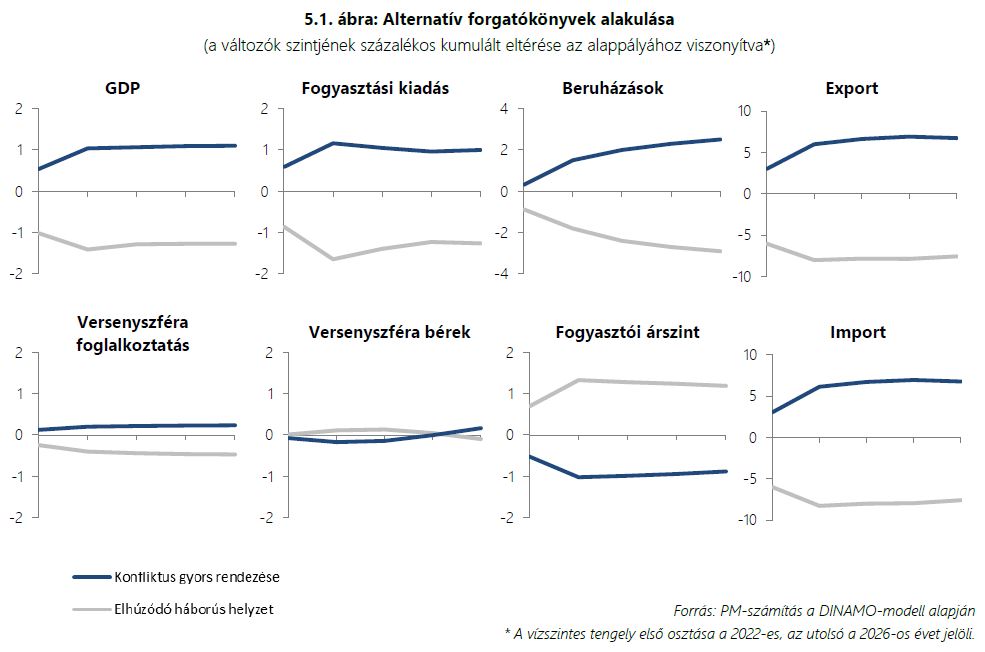No pension premium to be paid if the war drags on
EnglishEconomic growth in Hungary could fall to 3.3 percent this year if the Russian-Ukrainian war drags on. Pensioners will not receive a pension premium if GDP growth remains below 3.5 percent. Here are the main findings of the Finance Ministry's convergence programme.
In the Finance Ministry's baseline scenario, economic growth was projected to be 4.3 percent this year.
The growth rate required for the payment of the pension premium is 3.5 percent according to the convergence programme.
This means that if the GDP growth rate this year does not reach 3.5 percent, pensioners will not receive a pension premium.
Risks
If the war between Russia and Ukraine drags on, Hungarian economic growth could be 1 percentage point lower and be around 3.3 percent, according to the Finance Ministry's newly published convergence programme.
So in the event of a protracted military conflict, pensioners are unlikely to receive a pension premium.
This could be particularly painful for the elderly, as in the current high global inflationary environment, the pension premium has been a major help for the retired besides pension increases and the 13th month pension.
Pension increases and 13th month pension
It is good news, however, that the convergence programme of the Finance Ministry for 2022-2026 contains the payment of the 13th month pension and also the increases needed to maintain the real value of pensions.
Further impacts
In the event of a protracted military conflict, the growth of both household consumption and investment would be almost one percentage point lower this year than originally expected.
In the baseline scenario, the government expects consumption to grow by 5.5 percent and investment by 2.7 percent for 2022.

The prolongation of the war would have the most negative impact on Hungarian export and import figures: both could be reduced by 6 percentage points. The baseline scenario projected exports to increase by 5.7 percent and imports by 4.9 percent, which means that both export and import volumes would shrink compared to the previous year in case of a longer war.
The war, sanctions and higher energy and raw material prices are significantly reducing the external and internal demand. Real household incomes across Europe are being eroded by higher inflation.
Moreover, much of the inflation can be attributed to higher energy prices internationally; people have less money for consumption, and all these developments have a direct impact on Hungarian export figures.
Worsening supply chain problems would further undermine Hungarian export opportunities.
Lower external and internal demand would lead to a persistently lower economic performance.
Labour market
By contrast, the domestic labour market would not be significantly affected by a prolonged war in its current form. Employment would fall by only 0.2 percentage points, and the dynamics of average wage growth would basically remain unchanged.
Prices
A prolonged war would increase domestic inflation by 0.7 percentage points according to the Ministry of Finance.
At the same time, there could be raw material shortages in European countries, and the process would result in a tighter monetary policy and a higher interest rate environment.
Russian gas
However, market players agree that the biggest threat would be a partial or complete shutdown of Russian gas supplies, which would necessarily lead to severe gas shortages within a few months. 40-42 percent of EU gas imports come from Russia and there is no alternative to that in the short term.
A gas shortage would be a huge blow to the European energy sector and manufacturing industry, especially in Germany. This scenario could lead to a prolonged stagnation or economic downturn for several years throughout Europe.
